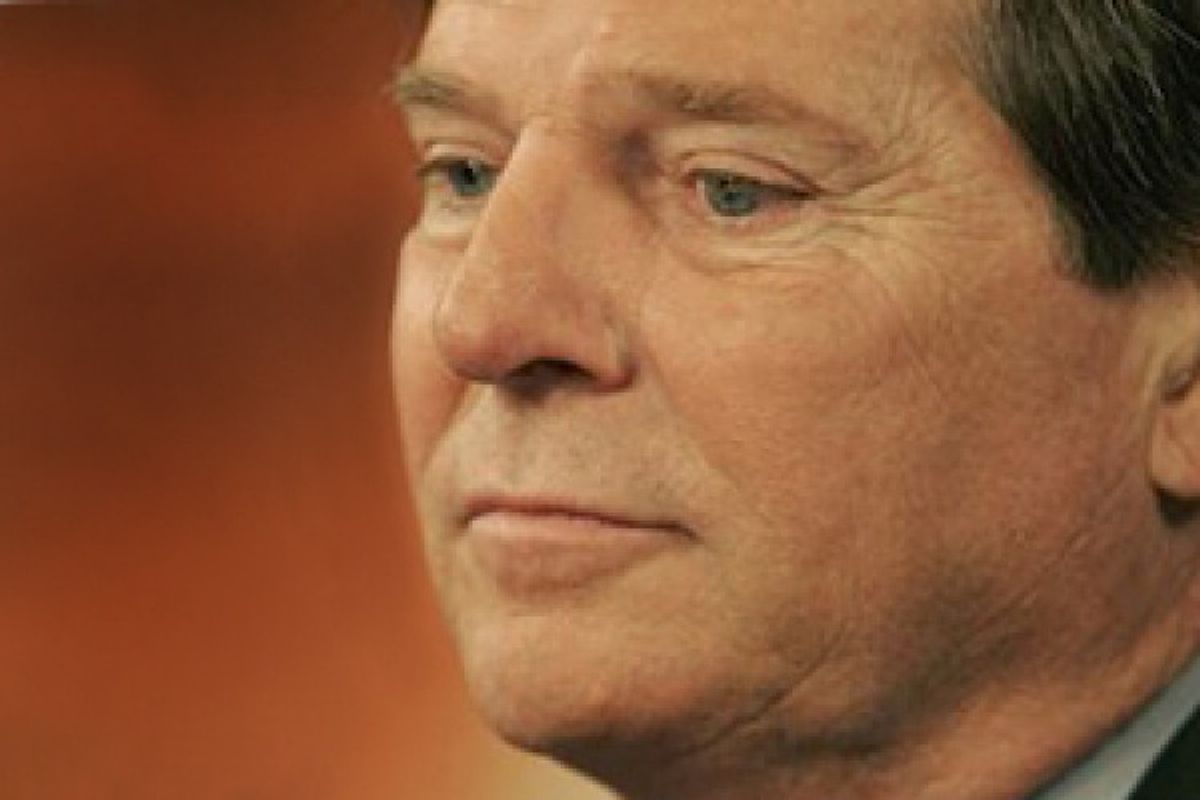It was probably the kind of trip that Tom DeLay could never have imagined taking back in the days when he was a pest exterminator in Sugar Land, Texas, or a fresh-faced congressman who had to scheme just to get his picture taken with Ronald Reagan.
But things were different in the spring of 2000 when every lobbyist in Washington knew that DeLay, despite his No. 3 rank in the leadership, was the master of the House. DeLay must have been thrilled to spend nine glorious days in London and Scotland without spending a shilling of his own. This was not a bug killer's life -- staying in luxurious accommodations at the Four Seasons, having a long personal chat with Margaret Thatcher about the end of the Cold War, teeing off at the legendary St. Andrews golf course. And thanks to the machinations of lobbyist Jack Abramoff, the entire trip was paid for by a public-policy foundation under the guise of being an educational mission and therefore theoretically within House ethics rules.
Even now -- with his congressional career over and the possibility of a federal indictment hanging over his head -- DeLay is unrepentant on the subject of his golf junkets. As the defrocked House majority leader told Time magazine in his exit interview from Congress this week, "I am very proud of the fact that I play golf. It's the only thing that I do for myself. And when you go to a country and you're there for seven days and you take an afternoon off to play golf, what does the national media write? All about the golf."
The petulant sense of entitlement in that remark captures the morality play that was DeLay's political career. He lusted after political power and then felt that a man with his clout deserved to live large in a way that was unaffordable on a congressional salary. Which is where shady lobbyists like Abramoff (who pleaded guilty to federal corruption charges and is, as they say, assisting the authorities in their inquiries) entered the picture. It also must have been galling to DeLay to watch former aides like Michael Scanlon and Tony Rudy (both of whom have also offered guilty pleas in the same federal investigation) get rich as high-rolling lobbyists.
In the old days in Washington (say, in the 1950s and 1960s), power itself was its own reward. House speakers like Sam Rayburn and John McCormack were near ascetics with few interests beyond vote counting and favor trading. But in the 1980s, the fabric of Congress and Washington changed. Suddenly the new ethic became, "If I'm so powerful, why aren't I rich?" The urge to wet one's beak proved bipartisan. Both House Speaker Jim Wright and Majority Whip Tony Coelho were forced to resign their posts and left Congress under a cloud because of ethical -- but not legal -- questions related to outside income (book royalties for Wright and a junk-bond investment for Coelho).
Yes, this late 1980s purge of the Democratic leadership was partially the handiwork of a GOP zealot named Newt Gingrich who was constantly shouting "J'Accuse!" (Correction: Republicans are not allowed to speak French.) It is also true that Wright's wrongs and Coehlo's conflicts were penny-ante stuff compared to Gingrich's gimmicks and DeLay's misdeeds. But after nearly four decades of unshakable control of the House, the Democrats were living out Lord Acton's dictum about the corrupting nature of absolute power.
Rutgers University political scientist Ross Baker raised the provocative question of why House leaders in both parties are so prone to ethical problems, while their Senate counterparts do not live in mortal terror of the word "indictment." (Senate Majority Leader Trent Lott, who was forced to step down after gushing about Strom Thurmond's 1948 segregationist campaign for president, had his judgment rather than his honesty questioned.)
In a Tuesday interview after DeLay resigned from Congress, Baker theorized that the difference is that leaders of the majority party in the House can behave like absolute monarchs, disdainful of the opposition party, while the leaders of the more individualistic Senate must negotiate over everything. The result is that House leaders are much more prone to come to believe that, in Baker's words, "public service is synonymous with personal enrichment."
To be sure, DeLay is not accused of doing anything crude like taking bribes (unlike, say, ex-GOP Rep. and current felon Duke Cunningham). But DeLay, like Gingrich before him, constructed his congressional career on the philosophy that he would walk the ethical line while cleverly managing never to get caught stepping over it. Morality aside, this approach leads to career-killing hubris. Which DeLay demonstrated in his successful mid-decade effort to redraw the congressional map of Texas, a heavy-handed power grab that led to questionable funding practices and an indictment under state law.
One of DeLay's major gifts to Republican lobbyists (who, not surprisingly, regarded the House majority leader as their benefactor) was something called the "K Street Project" -- an effort to force the influence-peddling industry along K Street to overtly display a GOP bias in hiring decisions and campaign contributions. As DeLay proudly told Time this week, Washington lobbyists now give 60 percent of their money to Republicans. "That's a change in the culture," DeLay said. "Democrats and the left hate that, and they have worked very hard to destroy it."
My guess is that, after a discreet interval, DeLay himself will become the ultimate beneficiary of the K Street Project. Who in this vast land of nearly 300 million people is better equipped by cynical background and malleable ideology to become an amoral, anything-for-a-buck lobbyist? At least that way Tom DeLay would finally be able to pay for his own golf junkets.



Shares